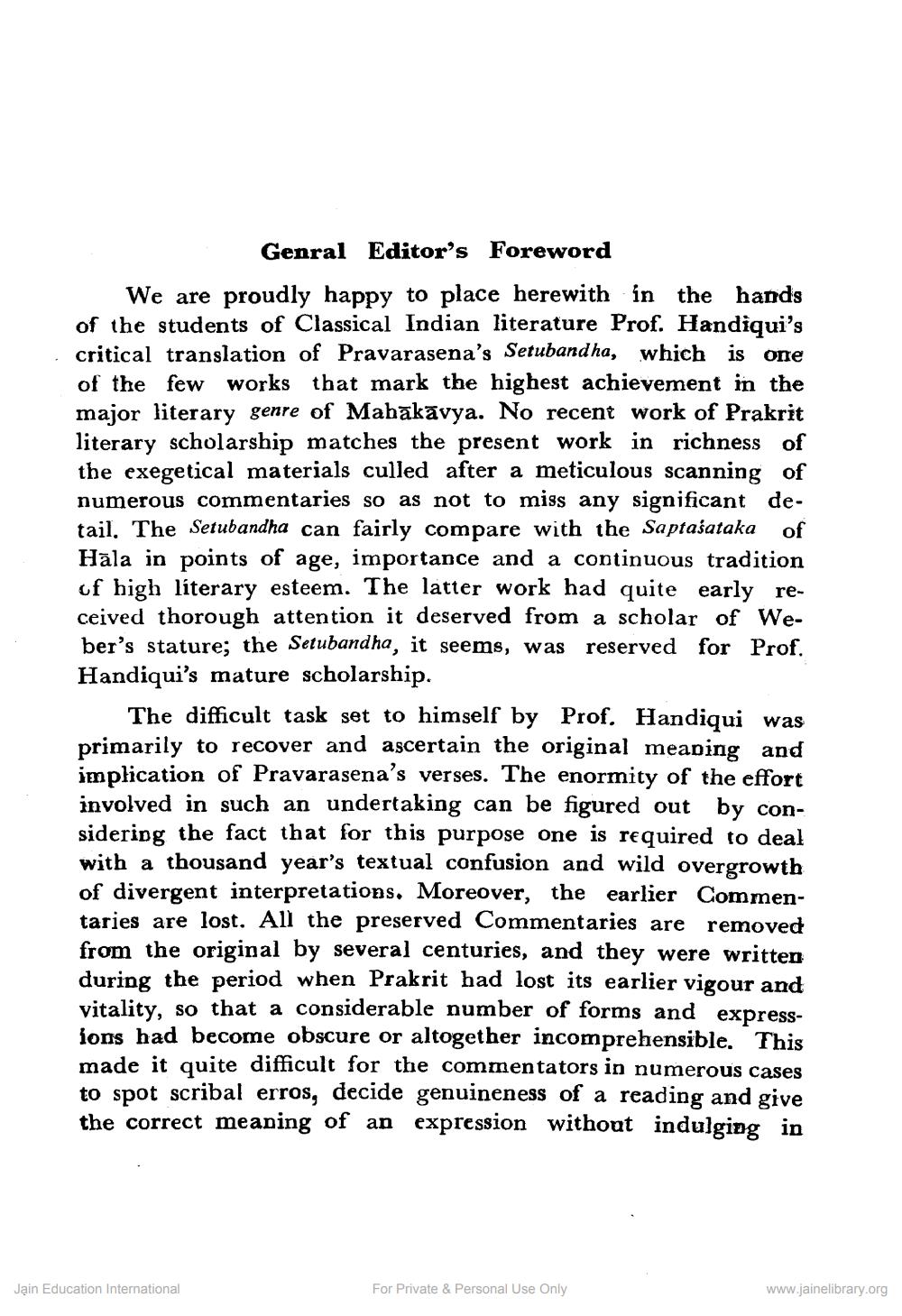________________
Genral Editor's Foreword
We are proudly happy to place herewith in the hands of the students of Classical Indian literature Prof. Handiqui's critical translation of Pravarasena's Setubandha, which is one of the few works that mark the highest achievement in the major literary genre of Mahākavya. No recent work of Prakrit literary scholarship matches the present work in richness of the exegetical materials culled after a meticulous scanning of numerous commentaries so as not to miss any significant detail. The Setubandha can fairly compare with the Saptaŝataka of Hala in points of age, importance and a continuous tradition of high literary esteem. The latter work had quite early received thorough attention it deserved from a scholar of Weber's stature; the Setubandha, it seems, was reserved for Prof. Handiqui's mature scholarship.
The difficult task set to himself by Prof. Handiqui was primarily to recover and ascertain the original meaning and implication of Pravarasena's verses. The enormity of the effort involved in such an undertaking can be figured out by considering the fact that for this purpose one is required to deal with a thousand year's textual confusion and wild overgrowth of divergent interpretations. Moreover, the earlier Commentaries are lost. All the preserved Commentaries are removed from the original by several centuries, and they were written during the period when Prakrit had lost its earlier vigour and vitality, so that a considerable number of forms and expressions had become obscure or altogether incomprehensible. This made it quite difficult for the commentators in numerous cases to spot scribal erros, decide genuineness of a reading and give the correct meaning of an expression without indulging in
Jain Education International
For Private & Personal Use Only
www.jainelibrary.org




